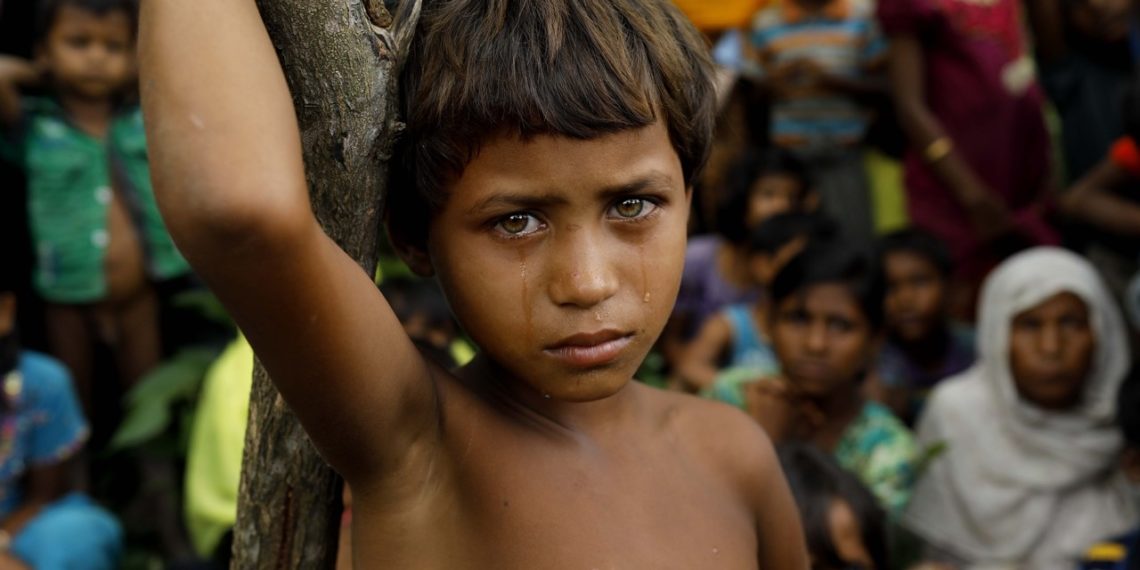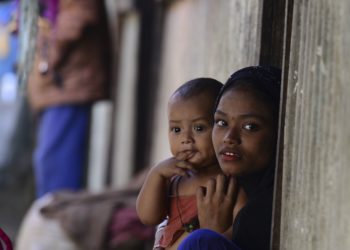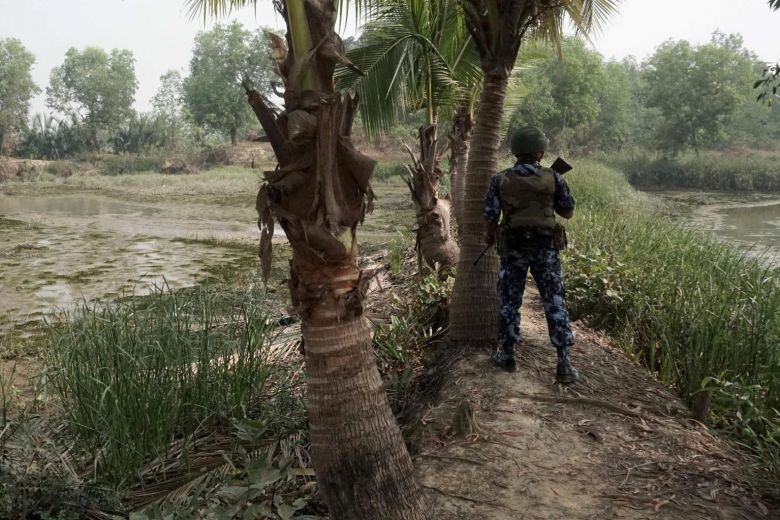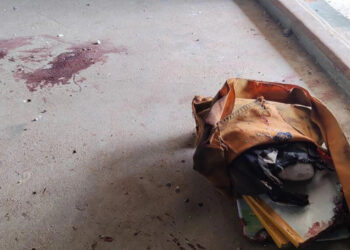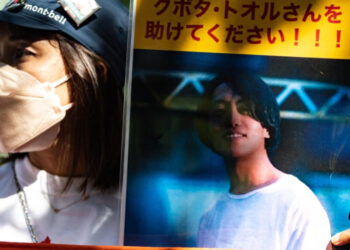In a historic ruling, the victims of one of the worst mass atrocities in modern history were officially recognized on the world stage for the first time last week.
The U.N.’s highest court issued a preliminary decision Thursday ordering Myanmar to do everything possible to end the alleged ongoing genocide of the country’s Rohingya Muslims.
The decision comes three years after the Rohingya were subjected to a brutal crackdown from Myanmar’s military, which killed thousands and sent three-quarters of a million refugees fleeing over the border into neighboring Bangladesh.
Hundreds of thousands of Rohingya refugees remain in sprawling, squalid camps in Bangladesh, while those who stayed in or returned to Myanmar’s western Rakhine state continue to face abuses from state authorities.
Survivors of the 2017 crackdown have documented atrocities ranging from the systematic rape of Rohingya women and girls to summary executions and the burning of entire villages.
The evidence compelled the Gambia – a small West African nation – to bring charges of genocide against Myanmar in the U.N.’s International Court of Justice (ICJ).
Though the court is yet to issue a ruling on the charges, last week’s preliminary decision is an important first step toward justice, said Steve Gumaer, President of Partners Relief & Development, one of the leading NGO’s operating in Myanmar.
In the wake of the ruling, The Globe Post‘s Bryan Bowman spoke with Gumaer to discuss the implications of the ICJ’s decision and the daunting challenges that the Rohingya continue to face.
The interview has been lightly edited for length and clarity.
Bowman: Before we jump into the ICJ’s ruling, could you explain what happened in Rakhine State in 2017 and how we got to the point where Myanmar faced such serious charges in international court?
Gumaer: There’s been a serious racial divide in Rakhine state long before 2017. In 2012, the regime incited riots in Sittwe that spilled into the destruction of a number of villages and the deaths of thousands of people. Most Rohingya will say more than three thousand people were killed by state authorities in that violence. The survivors, those that lived in the villages and the towns around Sittwe, were all marched into a flood plain and then barbed wire was set up around them. And to this day, 150,000 of them are in that camp.
In 2017, the state authorities began systematically attacking Rohingya villages. Not just attacking them but burning them down, doing all sorts of terrible things – systematic rape of the Rohingya women, killing people in horrible ways. It’s documented that they were throwing people into burning homes, including children. That resulted in a massive exodus of Rohingya out of Rakhine state into Bangladesh.
What led up to the 2017 genocide was a long history of the denial of the Rohingya as countrymen, even though they’re documented in Myanmar by the construction of mosques for over a thousand years. The regime says that it was the colonial administrators that brought them over for cheap labor, which of course, is true. But that was an increase in the population, not a new movement of one ethnic group into a homogeneous country of Buddhists.
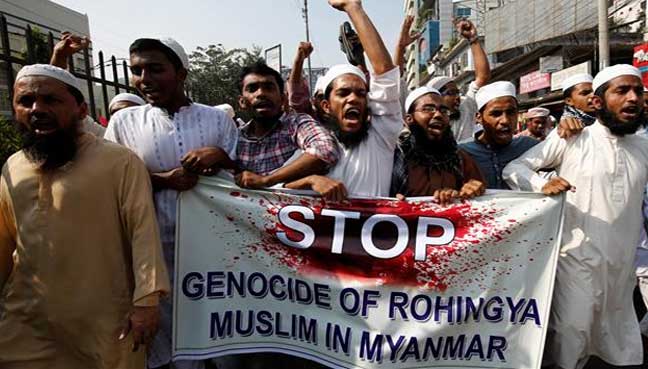
Then, of course, you’ve got the increased complexity of geopolitics where the borders of these countries were drawn by colonial and special interest issues and separated whole ethnic groups from one another. So the Rohingya people were divided by geography, much like the Kurds or other people who are divided because of these geopolitical and natural resource interests.
So what led to the 2017 genocide? It was the culmination of a long history of racial prejudices and racial, apartheid-type policy where the Rohingya people were denied the possibility of travel or marriage or higher education. And then finally, it resulted in a massive systematic application of violence against them.
Bowman: What exactly did the ICJ decide in their ruling last week? Could you walk us through their findings and the implications of the decision?
Gumaer: The ICJ is a U.N. body. It’s not a criminal court. It’s designed so that U.N. members can litigate against one another within the jurisdiction of the U.N. So the ruling that they made wasn’t a ruling on whether or not genocide happened.
It was a ruling that whatever they find in the end, the Rohingya need and require protection, they need and require the services that are basic human rights to all people, they will not be continually subject to violence, they’ll be protected, their reproductive rights will not be tampered with by the regime, and so forth.
The provisional measure, on one hand, is saying it’s very likely that they’re guilty, just that they made these provisional measures. And that’s encouraging to the Rohingya and to the international human rights community, our organization included. But it isn’t the final verdict of genocide. It is only provisional measures to influence the international community and Myanmar to protect these people.
Bowman: How was this decision received by the Rohingya? And what are some of the greatest challenges that continue to face the Rohingya people moving forward?
Gumaer: I think that the Rohingya would say that what they have been through, the amount of violence that they have endured, the denial of justice, being forcibly removed from their homeland, that the greatest thing the ICJ did was recognize them. I think they would say, “finally, an international body recognizes what was done to us.”
Our team has heard that multiple times now from both Sittwe and the places we work in Bangladesh. That the Rohingya celebrate that finally, they’re seen, they’re recognized for what they’ve been through, and that justice may follow.
The biggest challenges, though, are just the ongoing denial of food in Sittwe. If they don’t sign away their citizenship in that camp of 150,000, they don’t get food rations. If they don’t sign this in many places, it’s the fast track to starvation and deprivation.
In Bangladesh, it’s that the international agencies are just completely outstripped. They don’t have enough money. The Bangladesh government has to approve any block and services that they give. And they approve them in a way that keeps them clamoring for survival and to incentivize them to leave Bangladesh.
So the Rohingya continue to suffer. Especially those who are outside the reach of international agencies. Those Rohingya especially are subject to terrible exploitation and the constant grind of denial of basic rights.
Bowman: Bangladesh has increasingly put pressure on the Rohingya refugees there and has made it clear that it wants to repatriate them as soon as possible. But the refugees themselves have been very resistant to the idea of going back across the border. Do you believe this ICJ decision will ultimately make those refugees more comfortable with the notion of returning to Myanmar? Or is there a long way to go before that can happen?
Gumaer: I think it’s very unlikely that the refugees themselves are going to decide to go back to where the genocide happened. Where their homes were burned down. Where their wives were raped, their husbands were killed, and they ran for their lives.
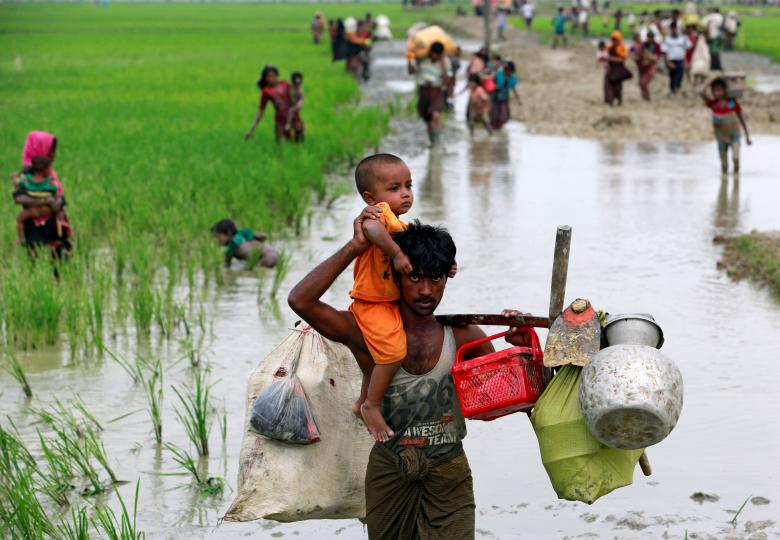
And now their villages are already populated by Bamar people or people sympathetic to the Bamar program of ethnic cleansing or genocide. The places that I have seen in pictures where the regime wants to repatriate them are similar to the concentration-camp-style buildings and enclosures in Sittwe. And I don’t imagine that any of the Rohingya are going to say yes to that. They’re not going to go back.
Bowman: Myanmar’s civilian leader Aung San Suu Kyi is a Nobel Prize laureate and was once considered to be among the world’s top human rights champions for her support for democracy in the face of political repression from the military. But she’s now come under serious scrutiny for having stood by while the same military that oppressed her carried out these atrocities. How do you think this saga will ultimately affect her legacy?
Gumaer: Even now, she’s lost all credibility in the international community. Heads of state who invested in helping her have given up on the possibility that she’s playing some long term game to consolidate power in order to bring about democracy. It’s clear to my colleagues and clear to us and clear to the Rohingya who voted for her in the hopes that she would restore order and democracy away from the rule of the Junta that Suu Kyi is not on their side.
Suu Kyi is on the side of the regime, is an apologist for the regime, and has betrayed the values that she wrote books about. So her reputation is, in my opinion, permanently destroyed.


